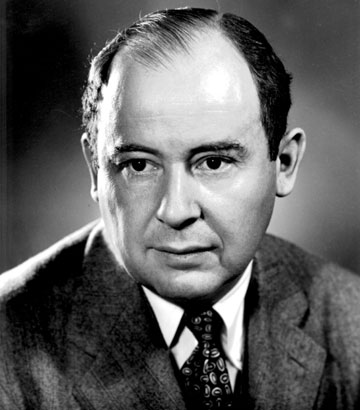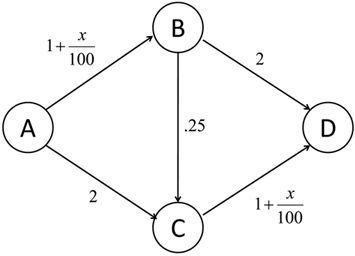A few people (unlike me) suffering from schizophrenia can lead a life with a full-time job. John Fobes Nash, who made fundamental contributions to game theory, real algebraic geometry, differential geometry, and partial differential equations, is a fine example (even though he had episodes when he was unable to practice the work as a scientist).
However, schizophrenia is known for low premorbid IQ (approximately one-half of a standard deviation below) and subsequent IQ decline (15-point IQ deficit in adulthood).
“There is evidence that further decline in cognitive functioning (at a level equivalent to about 5–10 IQ points or onethird to two-thirds of a standard deviation) generally occurs during the perionset (peri = surrounding or around (Latin)). Bilder and colleagues (2006) demonstrated that objective tests scores obtained from academic records (achievement test scores, and Scholastic Aptitude Test scores) of children who developed schizophrenia in adolescence or adulthood were significantly lower than those of their healthy peers. Furthermore, they also demonstrated that the change in cognitive ability at first onset of schizophrenia approximated about 11.5 IQ-equivalent points.”
When working in his prime, I estimate his IQ as high as 160-180 (160; one in 31,560; 180; one in 20,696,863). I will explain this later. IQ is deeply connected to talents and creativity.
But what about if he was a completely healthy individual (so no IQ decline)? Would John Nash have been one of the smartest men who ever lived if he hadn’t had schizophrenia?
What is schizophrenia and how can it affect thinking

Schizophrenia is a complex and chronic mental disorder that significantly impacts an individual’s thinking, feeling, and behavior. It is characterized by a range of symptoms, including hallucinations. Individuals may hear or see things that are not present, and delusions, which are strongly held false beliefs that often involve a misinterpretation of reality. People with schizophrenia often experience disorganized thinking, making it difficult to organize thoughts and leading to incoherent speech. Additionally, negative symptoms such as flattened emotions, lack of motivation, and social withdrawal are common. Cognitive symptoms, including impaired memory, attention, and executive functioning, further complicate the disorder.
“Psychomotor speed, as measured with common tasks, such as the Trail Making Test or Digit Symbol from the Wechsler Adult Intelligence Scale—Third Edition (WAIS-III), can be thought of as comprising two components: (1) mental processing speed and (2) efficiency of psychomotor integration. Both may be affected by schizophrenia and/or its treatment. The conventional neuroleptics were noted in particular for their tendency to elicit extrapyramidal symptoms, including psychomotor slowing, which can affect performance on tests designed to measure an array of other cognitive ability areas.”
One of the common symptoms is also delayed recall (your thoughts and thinking threads being delayed) which may complicate a work as a scientist.
Given the fact schizophrenia deeply affects your thinking process, it is and isn’t (because he may have been free of memory problems) surprising that John Nash made such a great contribution.
Why his IQ was so high?
Of course, there are a lot of scientists who have IQs “lower”, but are enormously talented in mathematics. You may object this was the case of John Nash and that my estimate is wrong.
Please be aware we just estimate, but since psychometrics knows a lot (no matter whether IQ, talents, or even creativity), my estimate is likely to be correct.
IQ (the “g factor”) is the key element in mathematics research. It is the sheer intelligence that is important. While one can have talent for it, the ability to be successful in fields such as physics, programming, and chemistry) is “the g factor” (IQ).

And because of his immense contribution to various fields aforementioned, I am inclined his IQ must have been the highest of the highest.
You don’t have to have a rich vocabulary, a talent for languages or to be smart in a broader or generalizable way. The IQ is the key.
John Nash likely had premorbid and adulthood decline
Heinrichs and Zakzanis (1998) conducted a meta-analysis of 204 studies of cognition in schizophrenia and concluded that 60–80% of patients with schizophrenia have at least mild neurocognitive deficits.
Of course, not everyone suffers from premorbid and adulthood decline. So what about John Nash?
His struggle with the disorder became evident around 1959 when he was in his early 30s. This goes well with the finding that late onset has a better prognosis.
“Good prognostic factors include: absence of family history, good premorbid function – stable personality, stable relationships; clear precipitant, acute onset, mood disturbance, prompt treatment.”
I may surprise you, but I think he was no exception in cognitive decline. Make no mistake, his acute inability to concentrate is well-documented, but I am talking about permanent cognitive deficits.
Basically, nobody with schizophrenia escapes it and even if his mental abilities were excellent, it was his extremely high IQ that made cognitive deficits connected to schizophrenia less prominent. For example, his processing speed was limited by schizophrenia but his extremely high IQ caused it to be still at an enormously high percentile.
The smartest man who has ever lived – matching John von Neumann
So, if he hadn’t experienced a decline in childhood and adulthood, his IQ would have been between 183 (one in 63,492,548) and 203 (more than 190 billion). The second number makes little sense, as there aren’t enough people on the planet for such a high IQ to be statistically plausible.
My estimate of John von Neumann’s IQ is 190 (99.9999999010% or 1 in 1,009,976,678). Without schizophrenia, it could have been entirely possible for John Nash to match von Neumann.

If John Nash didn’t have schizophrenia, what his contribution would have been?
It is saddening that schizophrenia likely prevented this titan from achieving greater contribution. But let’s dive into speculations!

One possibility is that Nash might have expanded his contributions to game theory beyond his seminal equilibrium concept. A “smarter” Nash could have developed more advanced concepts or identified solutions to even more complex strategic problems, potentially extending game theory’s applications further into fields like biology, computer science, and social sciences. Additionally, his contributions to pure mathematics, including his work on partial differential equations and real algebraic geometry, might have been even more profound. Enhanced intelligence could have enabled him to solve other outstanding problems or develop new mathematical theories that would have significantly advanced the field.
Given Nash’s existing ability to work across disciplines, a more intelligent version of himself could have made groundbreaking contributions at the intersection of multiple fields, such as economics, mathematics, and computer science. This might have led to innovations in artificial intelligence, cryptography, or complex systems analysis. Furthermore, a more practically inclined and even smarter Nash might have developed direct applications of his theories to real-world problems in economics, politics, and business, potentially. It would lead to new models for economic policy or innovative strategies in market analysis. His methods for approaching problems were already innovative. And greater intelligence could have resulted in novel problem-solving techniques or algorithms used across various scientific and engineering disciplines. Additionally, a “smarter” Nash might have had an even greater influence as a mentor and educator. It would have inspired a new generation of mathematicians and economists, thereby spreading his ideas more widely and effectively. While these scenarios are speculative, they underscore Nash’s profound impact and suggest that even small increases in his cognitive abilities could have amplified his influence and contributions across various domains.
What about creativity and mental illness?
But he was mentally ill and there is a connection between being mentally ill and creativity!
Creativity, even if we don’t know anything, is clearly connected to IQ. And while John Nash may have had huge creativity, it was his IQ that made his efforts possible.
The issue is that the connection between creativity and being mad is highly controversial. From what we know so far, there is no clear link which is suspicious since if there were a powerful connection, we would be able to measure it.
Conclusion of John Nash without schizophrenia
The tragic fate of John Forbes Nash Jr. (including his death) reminds us that it is not a scientific contribution that makes our life liveable, but being healthy.
While his contribution is enormous, it was his hallucinations and delusions (maybe unbearable) that drastically worsened his quality of life.
In my humble opinion, he was no exception to the cognitive decline trajectory which is linked to schizophrenia.
So if he didn’t have this one of the worst psychiatric diseases, he could have been easily one of the smartest men who have ever lived.
There were 117 billion humans who have ever lived. Speaking of genetics, a huge number of people were equipped better. But since his life was in the modern era (people back then lived in eras when there were no intellectual stimuli) and he received a formal education, his IQ without schizophrenia would have been one of the highest.
Sources: IQ comparison chart, Kim T. Mueser PhD, Dilip V. Jeste MD – Clinical Handbook of Schizophrenia (2008); Schizophrenia (Daniel R. Weinberger, Paul Harrison; 2011)

Leave a Reply